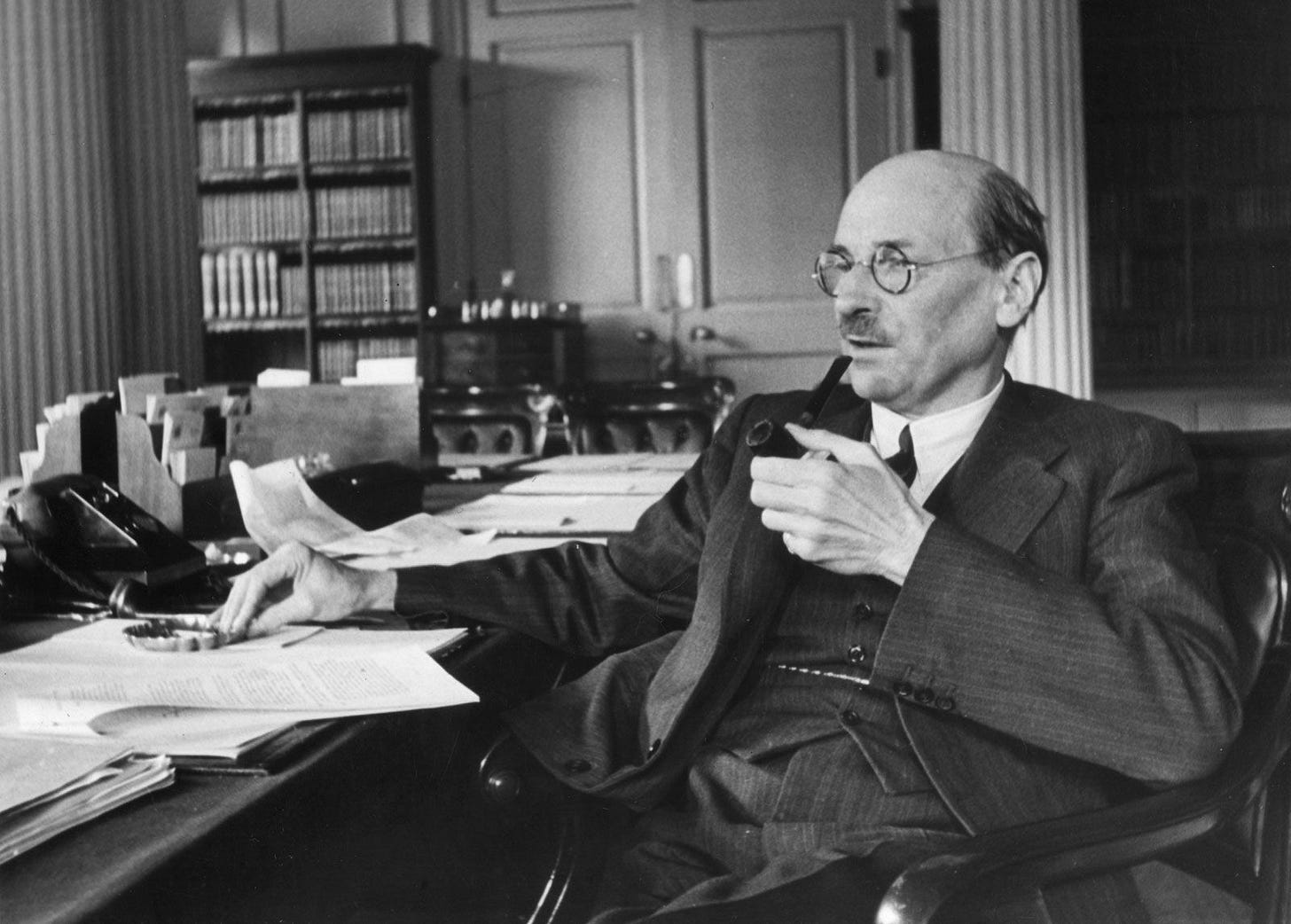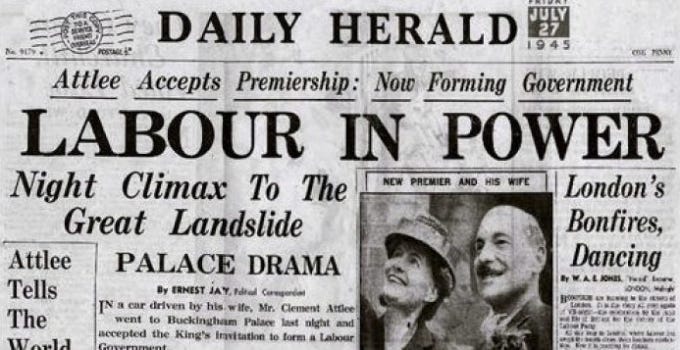1945 was not only the end of WW2 - signified via the surrender of Germany and Japan in May and August respectively.
It also involved, from a British standpoint, a shift in the political culture, landscape, and direction for decades to come.
On May 8th 1945, PM Winston Churchill greeted triumphant crowds in London, along with HM King George VI.
Germany had been defeated, with its unconditional surrender just prior.
Japan was still at large, but with the Americans progressing in the Pacific, the British pushing them back in Burma, and the Chinese holding on in their own country, they were soon to meet the fate of Germany. It was a matter of when and not if Japan would fall.
With Europe secure, Churchill called a general election for July 1945.
It seemed inevitable that he would win. He led Britain through its darkest hour, after the Dunkirk withdrawal and the Battle of Britain. His stirring speeches provided resolve and resilience to the British people. He was instrumental in developing plans and strategies with the Americans and Soviets that aided in defeating the Axis threat.
So surely, he was going to secure as PM.
Well, it didn't quite turn out that way.
Clement Attlee
Clement Attlee was the leader of the Labour Party from the mid-1930s. A democratic socialist, he like Churchill was Oxbridge-educated and a WWI veteran. He also served under Churchill as Deputy Prime Minister in his wartime coalition ministry.
In some ways, he was Churchill’s contrary. Whilst Churchill was brash and cocky, Attlee was more reserved and contained.
A joke (attributed to Churchill) was “An empty taxi drove up to 10 Downing Street, and out of it stepped Clement Attlee.”
Despite his lack of charisma, both he and Churchill would go down as noted Prime Ministers, albeit for different reasons.
Attlee’s government created the NHS, based on the wartime Beveridge Report, and nationalised key industries such as steel, railways, coal, etc. The subsequent post-war consensus, adopted as such ironically by the 1951-1955 ministry of Sir Winston Churchill, came to be the economic domestic orthodoxy until Margaret Thatcher’s tenure commenced in 1979.
Attlee was also noted to be a hands-on and shrewd administrator, evidenced by his role as Deputy PM under Churchill and PM outright.
In various polls, Attlee has ranked very highly in terms of his effectiveness as PM. Whether one is a Labour supporter or not, his legacy cannot be discounted.
Why Labour won
In policy terms, there were parts of the Tory manifesto that mirrored Labour’s.
Churchill, based on the Beveridge Report, also called for a state-controlled health system, and an expansion of the pre-WW2 social and welfare reforms.
However, there were other factors in this regard:
Better rhetoric
Despite growing welfare provision in the interwar period, there was a desire to make the country fairer and more just for all.
Whilst Churchill and the Conservatives offered similar, they were still seen as the party of the wealthy and privileged.
Labour in kind, as a workers’ and socialist party, reflected the common mood of many people. British society back then was more class-oriented, with less social mobility or access to education than today. Many were manual workers, and thus the Labour party was a natural fit.
Labour also capitalised on building a new Britain, forged from the sacrifices, losses and ultimate triumph of war.
The Tories in contrast were seen to retain the older order, albeit with more welfare added on top.
The Labour “Gestapo”
Churchill made a major gaffe in his campaigning.
Whilst critiquing Labour’s plans for nationalising key industries, he cited the party as a new “Gestapo”, trying to impose itself on the masses.
One can understand why he said this, as a rhetorical move to liken Labour to the recently defeated Nazis.
However, many who fought and died in the war, and who still were at war in the Far East against Japan, were Labour supporters.
To label them as akin to an arm of the defeated foe was offensive and disrespectful amongst many in the electorate.
Voting day was on the 5th of July 1945, with Labour gaining a landslide, pushing Churchill and the Tories into Opposition.
At the time of writing, it’s possible that another July election could see history repeat itself with Labour gaining a landslide. Let us wait and see.




